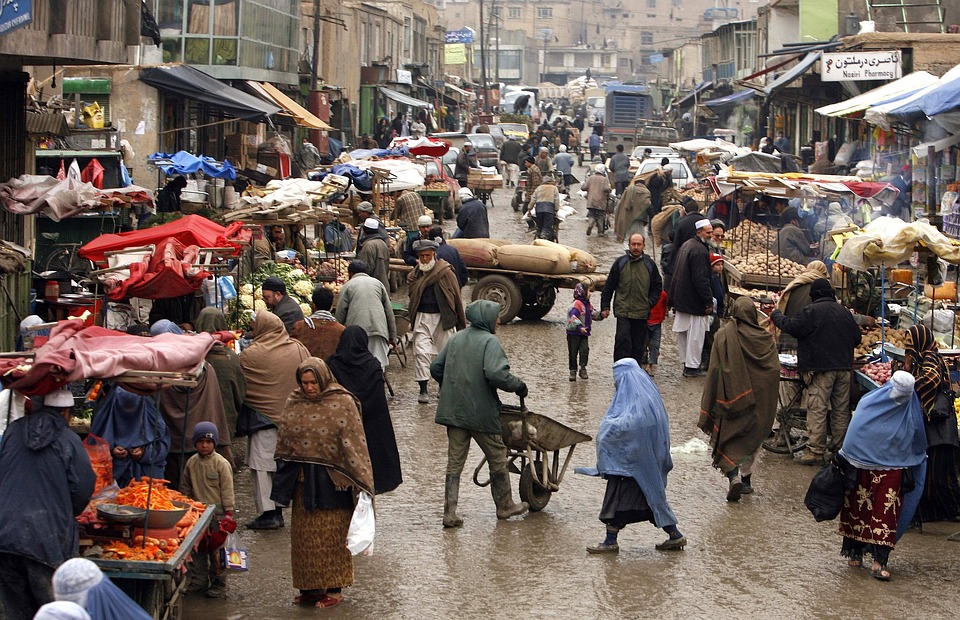Among the restrictive policies the Taliban administration has imposed in Afghanistan was banning female aid workers, resulting in backlash from the international community. Some donors have raised concerns following some of the aid provided by the United Nations delivered by men only.
The United Nations has delivered some aid to Afghans in need by men, prompting concerns among donors and humanitarian groups that the move may be seen as giving in to the Taliban’s restrictions. UN aid chief Martin Griffiths acknowledged this week that women are not involved in some food aid operations which were described by the World Food Programme as “operational adjustments” for the group to continue its work. However, Griffiths said it was inadequate.
“There are still activities ongoing where men only, for example, delivering good, but it can’t work,” Griffiths told reporters on Monday after visiting Afghanistan last week. Griffiths also stressed that Afghan women need to work in food distribution to ensure that supplies reach the most vulnerable.
Any potential changes in the United Nations’ approach to food aid have raised concerns among donors and humanitarian groups. The United States has expressed concern that some UN agencies may be considering an all-male aid delivery model, according to deputy US ambassador to the UN Lisa Carty during a briefing with Griffiths and UN member countries.
“This could effectively cut off access to aid to women in need,” said Carty. “It could signal international agencies’ acquiescence to the Taliban’s unacceptable conditions thus normalizing the suppression with repercussions for humanitarian settings elsewhere.”
In an operational note on Wednesday, the International Rescue Committee said that female participation was an “operational necessity” and that “without female staff at all levels and across all sectors, we cannot accurately assess needs and deliver aid and programs at the necessary scale.”
In another restriction against women, last week, the Taliban ordered universities to ban female students from sitting in to take the entrance exams that are set to take place by the end of February. The order was in a letter from the Taliban-run ministry of higher education and sent to institutions in northern Afghanistan including the capital Kabul. This follows the insurgent group’s ban on female students entering universities back in December.



 Federal Judge Restores Funding for Gateway Rail Tunnel Project
Federal Judge Restores Funding for Gateway Rail Tunnel Project  Iran–U.S. Nuclear Talks in Oman Face Major Hurdles Amid Rising Regional Tensions
Iran–U.S. Nuclear Talks in Oman Face Major Hurdles Amid Rising Regional Tensions  Pentagon Ends Military Education Programs With Harvard University
Pentagon Ends Military Education Programs With Harvard University  Trump’s Inflation Claims Clash With Voters’ Cost-of-Living Reality
Trump’s Inflation Claims Clash With Voters’ Cost-of-Living Reality  US Pushes Ukraine-Russia Peace Talks Before Summer Amid Escalating Attacks
US Pushes Ukraine-Russia Peace Talks Before Summer Amid Escalating Attacks  Norway Opens Corruption Probe Into Former PM and Nobel Committee Chair Thorbjoern Jagland Over Epstein Links
Norway Opens Corruption Probe Into Former PM and Nobel Committee Chair Thorbjoern Jagland Over Epstein Links  Ohio Man Indicted for Alleged Threat Against Vice President JD Vance, Faces Additional Federal Charges
Ohio Man Indicted for Alleged Threat Against Vice President JD Vance, Faces Additional Federal Charges  U.S. Announces Additional $6 Million in Humanitarian Aid to Cuba Amid Oil Sanctions and Fuel Shortages
U.S. Announces Additional $6 Million in Humanitarian Aid to Cuba Amid Oil Sanctions and Fuel Shortages  Trump Signs Executive Order Threatening 25% Tariffs on Countries Trading With Iran
Trump Signs Executive Order Threatening 25% Tariffs on Countries Trading With Iran  India–U.S. Interim Trade Pact Cuts Auto Tariffs but Leaves Tesla Out
India–U.S. Interim Trade Pact Cuts Auto Tariffs but Leaves Tesla Out  Trump Endorses Japan’s Sanae Takaichi Ahead of Crucial Election Amid Market and China Tensions
Trump Endorses Japan’s Sanae Takaichi Ahead of Crucial Election Amid Market and China Tensions  Trump Signs “America First Arms Transfer Strategy” to Prioritize U.S. Weapons Sales
Trump Signs “America First Arms Transfer Strategy” to Prioritize U.S. Weapons Sales  Jack Lang Resigns as Head of Arab World Institute Amid Epstein Controversy
Jack Lang Resigns as Head of Arab World Institute Amid Epstein Controversy  Missouri Judge Dismisses Lawsuit Challenging Starbucks’ Diversity and Inclusion Policies
Missouri Judge Dismisses Lawsuit Challenging Starbucks’ Diversity and Inclusion Policies  New York Legalizes Medical Aid in Dying for Terminally Ill Patients
New York Legalizes Medical Aid in Dying for Terminally Ill Patients  U.S. to Begin Paying UN Dues as Financial Crisis Spurs Push for Reforms
U.S. to Begin Paying UN Dues as Financial Crisis Spurs Push for Reforms  Trump Allows Commercial Fishing in Protected New England Waters
Trump Allows Commercial Fishing in Protected New England Waters 































